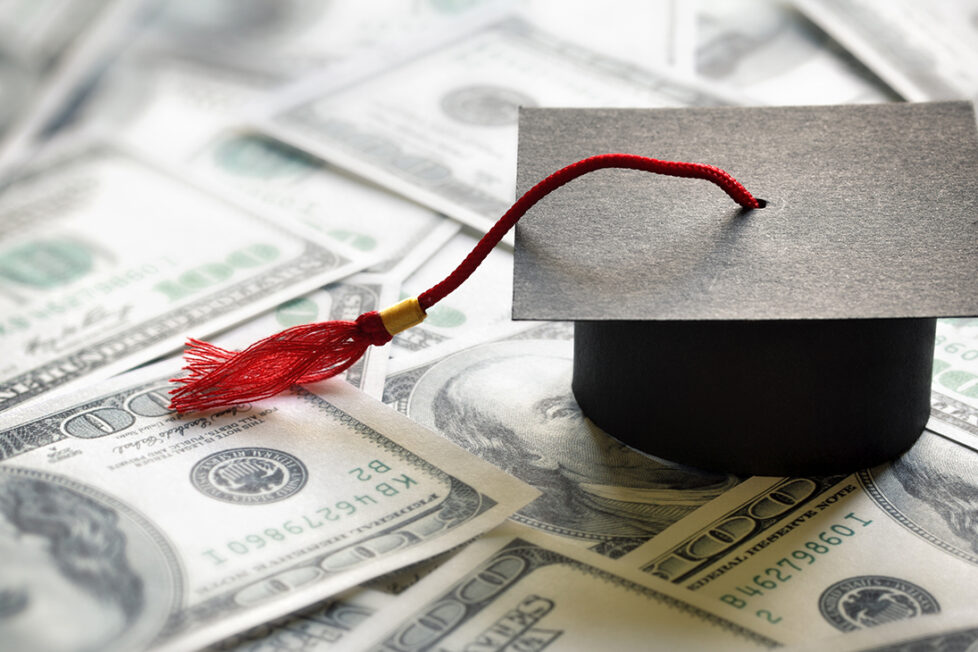Alarming surge in student loan scams targets Americans; Biden’s SAVE plan and disproportionate impact on Black borrowers

By: Stacy M. Brown / NNPA
Amidst the impending resumption of student loan payments in October, scammers are intensifying their efforts to exploit borrowers, with more than 350,000 student-loan-related robocalls reported in the last two weeks alone, according to Transaction Network Services (TNS), a leading authority on identifying robocall scams across various carrier networks.
The surge in scams coincides with the conclusion of a pandemic-induced hiatus on loan repayments, implemented in 2020 to provide financial relief to borrowers amidst the public health crisis. The renewal of student loan debt payments also comes in the wake of the Supreme Court’s rejection of President Biden’s proposal to forgive up to $20,000 per borrower, leaving many uncertain about their financial futures.
“Scammers seize on chaos and confusion,” John Haraburda, a robocall data expert at TNS, told CBS News. “Right now, you have a lot of activity with the new White House student loan plan, loan payments set to resume in October and the start of the school year.” He emphasized the importance of skepticism, advising consumers to operate under the assumption that “when something sounds too good to be true, it is.”
[SCROLL BREAK!!! Bayou Beat News can also be found in PRINT at a store near you. Click the link below to check out our E-Edition!]
Reports from TNS transcripts reveal that scammers often initiate contact by referencing an individual’s student loan and then offer seemingly enticing solutions, such as reducing or deferring monthly payments or even promising total loan forgiveness. Some deceitfully claim affiliation with the Department of Education, while others represent vaguely official-sounding organizations like “student services.”
For example, one recorded robocall falsely declared: “This is United Services Student Loan Department with an urgent call to our clients regarding the new federal program, which now qualifies for complete dismissal and full discharge of all your federal student loans, as well as a refund of monies paid and removal from credit history,” according to a TNS transcription, and reported by CBS News.
Scammers may also request upfront payments under the guise of facilitating debt relief or charge fees for otherwise free services. As TNS warns, they might also seek private information like Social Security numbers. IdentityIQ, an identity theft protection company, further warns that some fraudsters pose as new student loan servicers, taking advantage of borrowers’ unfamiliarity with recent changes in servicing companies.
Authorities are urging borrowers to confirm their student loan servicer to help safeguard against potential scams. Borrowers can log into StudentAid.gov or contact the Federal Student Aid Information Center. They should also remain vigilant for spelling and grammatical errors, which can serve as red flags for fraudulent communication.
The Federal Trade Commission (FTC) reiterated that borrowers should never pay for assistance managing their student loans. In a recent warning, the FTC emphasized, “If someone tries to charge you upfront, before they’ve done anything, that’s your first clue that this is a scam,” and emphasized that legitimate sources will never offer instant loan forgiveness.
Recent data from the Board of Governors of the Federal Reserve System underscores the disproportionate impact of student debt within different communities, with Black borrowers shouldering the largest share of federal student loan debt in 2019, a stark reminder of the unique challenges they face in the current landscape.
Following the Supreme Court’s rejection of the initial student debt relief plan, the Biden administration introduced the Saving on a Valuable Education (SAVE) plan. The new provisions include reducing income-driven repayment plans from 10% to 5% of discretionary income and forgiving loan balances after ten years of payments for borrowers with original balances of $12,000 or less. The plan, which took effect on August 22, 2023, to provide some relief amidst the ongoing student loan crisis, already has reached more than 4 million in enrollment.
The White House called SAVE the “most affordable repayment plan ever,” which officials said would result in millions of borrowers saving money on their monthly payments. Borrowers who earn less than $15 an hour will not be required to make payments, and anyone who does earn more will save more than $1,000 on payments.
“From Day One of this Administration, President Biden has focused on reducing the burden of student loan debt on working families, and we are not stopping now,” U.S. Secretary of Education Miguel Cardon said. “Enrollment is quick and easy, and we are working relentlessly to get the word out to borrowers about how millions can reduce their monthly student loan bills and save over a thousand dollars a year by enrolling in SAVE.”
